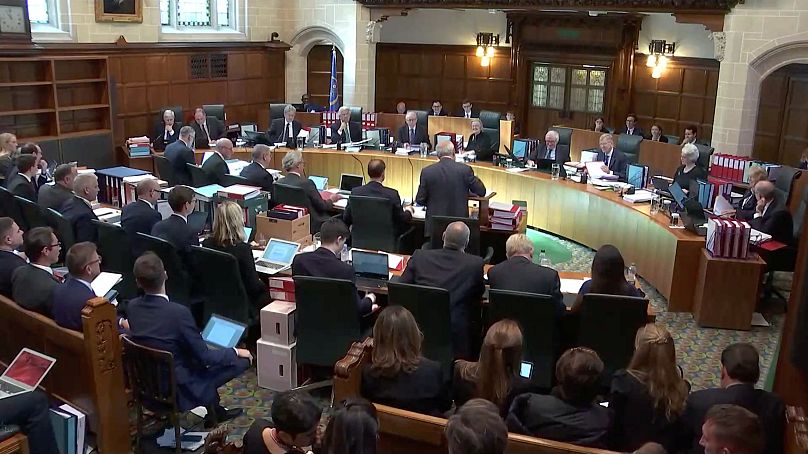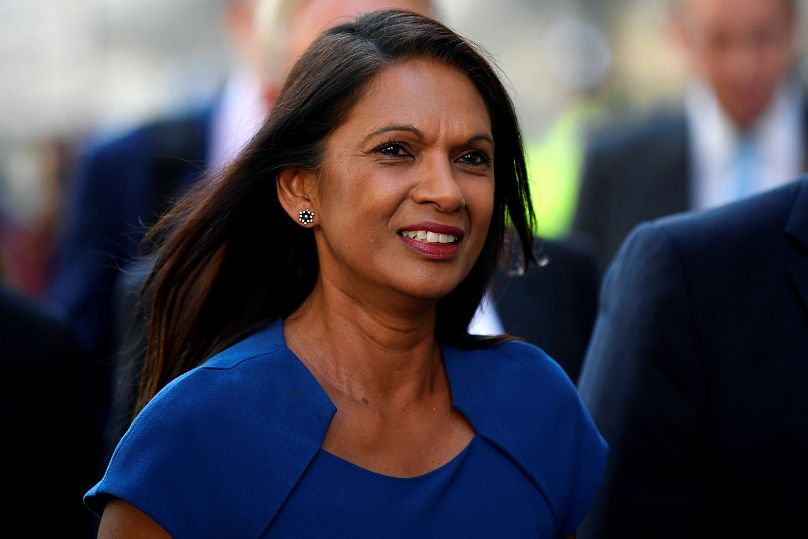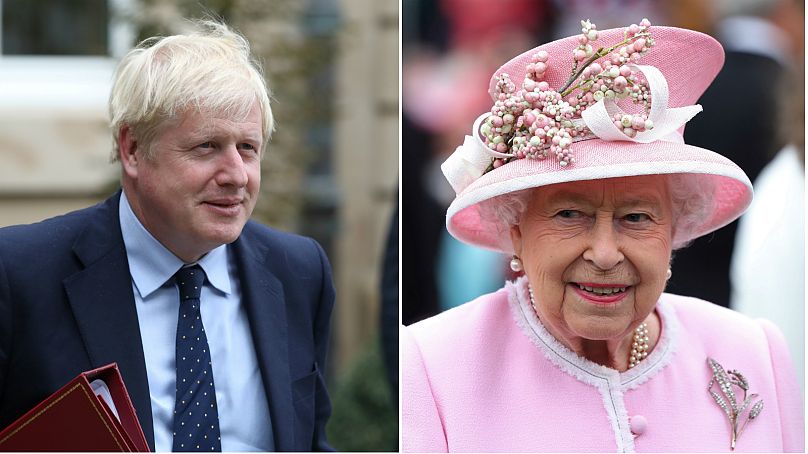As the three-day hearing against Boris Johnson's prorogation of parliament gets underway, we lay out the fundamentals of the court in which this case is being heard.
A three-day hearing is currently underway at the Supreme Court in London to decide whether the decision by UK Prime Minister Boris Johnson to suspend Parliament is a matter for the courts — and, ultimately, whether it is lawful.
 ADVERTISEMENT
ADVERTISEMENT
 ADVERTISEMENT
ADVERTISEMENT
But with several such cases being brought to various courts around the UK recently, what is the significance of this particular hearing?
What is the Supreme Court?
The Supreme Court in the UK is the country's highest court, and gives the final say on cases that affect the entire population and have been appealed by lower courts.
Established in October 2009, the court became a means to create a clear separation between senior judges and the Upper House of Parliament, ie: The House of Lords.
It also serves in a role that sits above the UK's three separate judicial jurisdictions — England and Wales, Scotland, and Northern Ireland — as the highest power of appeal.
Where is it?
The building is situated in the heart of London and is close to many iconic structures of the UK's capital city.
In its own words, the court "forms part of a pre-existing quadrangle made up of the Houses of Parliament, Westminster Abbey and the Treasury".
Who are the main players?
Unlike the lower courts, which are presided over by judges, the UK's Supreme Court has justices — 12 in total.
In order to become a justice, a potential candidate must have held a high position in judicial office for at least two years, and must have been qualified in practicing law for 15.
It is led by the president of the court, who is currently Baroness Hale of Richmond.
Brenda Marjorie Hale, the Lady Hale of Richmond, rose from her position as deputy to take the helm in 2017 from Lord Neuberger of Abbotsbury.
She is a woman with a history of firsts, having become the first High Court judge in 1994 to be a career academic and public servant rather than a practicing barrister, and was the first female Law Lord.
In 2009, she became the first female justice of the Supreme Court.
So, what is the role of the Supreme Court in the prorogation of Parliament?
The Supreme Court is currently hearing the case over Johnson's decision to prorogue — or temporarily shut down — Parliament.
He has been accused by critics of using the suspension scheduled until mid-October as a means to give opposition MPs less time to stop him from pushing through Brexit on the 31st — deal or no deal.
But the prime minister insists he was just following procedure by shutting down parliament in the lead-up to the Queen's Speech, which opens a new parliamentary session by setting out the government's priorities.
Businesswoman Gina Miller initially brought the case to the High Court in England and Wales, claiming the prorogation was an "unlawful abuse of power".
This was eventually rejected by the High Court as a case that was purely "political" and "not justiciable", ultimately deciding it was "not a matter for the courts".
It specifically noted: "The prime minister's decision that Parliament should be prorogued at the time and for the duration chosen and the advice given to Her Majesty to do so in the present case were political."
Meanwhile, 75 MPs brought the case last week to the Inner House at the Court of Session in Scotland, which found the case was, in fact, a matter for courts, and later ruled the advice Johnson gave to the Queen on his reasons to suspend Parliament as "unlawful".
As a result, it also deemed the suspension "null and of no effect".
Following this, the government requested to appeal the ruling with the Supreme Court, which would have a final say on the issue.
It is being heard by 11 of the 12 justices, and is focusing on three things:
Whether the case is justiciable, ie: whether it is a matter for the courts
Whether the appeal "is academic" — or practical — "given Parliamentary sittings before the UK’s exit from the EU"
And, if the case is found to be justiciable, whether Johnson's advice to the Queen was lawful
If the case is not found to be justiciable, or if it is found to be justiciable but not unlawful, then the suspension of Parliament can continue until its scheduled date of October 14.
It is as yet unclear what will happen if the Supreme Court finds the case both justiciable and the advice to the Queen unlawful.
The prime minister’s spokesperson said last week that the government would obey a ruling from the Supreme Court — but we will have to wait and see.













